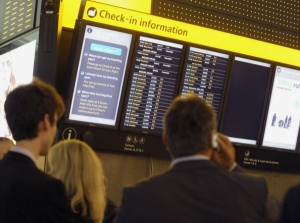UK government rules out structural changes to Air Passenger Duty

Despite strong calls for reform from industry and passengers, the British government has revealed it will not make any structural changes to Air Passenger Duty (APD) following a lengthy consultation process.
The announcement follows the release of the Autumn Statement last week, which revealed a ten per cent increase in APD from April 2012.
Among the many organisations expressing concern, ABTA has been calling for the government to freeze the increase in APD; change the banding structure to two bands to make it fairer; and reduce the amount of tax paid on premium economy seats to ensure they are not classed in the same way as business and first.
“The government has rejected all common sense recommendations from industry to reform this tax and gone ahead with a ten per cent increase,” said Mark Tanzer, chief executive of ABTA.
“To completely ignore all recommendations after a lengthy consultation is extremely disappointing.
Government officials also confirmed the treasury will not offset revenues raised through the Emissions Trading Scheme (ETS) against APD, meaning that passengers will be taxed twice when they fly from January 2012.
Under the current banding structure, countries are banded based on where their capital city is located.
This has given rise to what many view as unacceptable tax burdens on destinations such as the Caribbean where holidaymakers pay more tax than they would to fly to Hawaii.
Chief executives from leading airlines in the UK – including Carolyn McCall from easyJet, Willie Walsh of IAG, Michael O’Leary from Ryanair and Steve Ridgway from Virgin Atlantic – were all quick to condemn the decision.
In a joint statement they said: “The government consultation on APD has been a sham and a waste of taxpayers’ money.”
They added a call for the government to commission an independent study into the overall economic value and impact of APD.
“We have no doubt this would confirm that APD’s negative effect on UK GDP significantly outweighs its revenue benefit for the Treasury,” added the statement.
Independently British Airways said it was cutting recruitment plans and mothballing aircraft as a direct result of the tax.
The Caribbean Tourism Organisation (CTO) also revealed its “deep disappointment” following the announcement.
Ricky Skerritt, chairman of the CTO, said: “The announcement on APD is a slap in the face for all Caribbean people.
“It dismisses all of the research and information CTO has provided to the British government over the past three years and it contradicts the message sent by the UK chancellor, George Osborne, in March 2011 when he cited the discrepancy between the USA and Caribbean APD rates as one of the reasons for holding a consultation on reform of UK APD.
“The Caribbean is the most tourism-dependent region of the world and the British government’s decision totally ignores the negative effect that APD is having on our economies and the Caribbean’s business partners in the UK travel industry.”
More information on the tax proposals can be found here.

